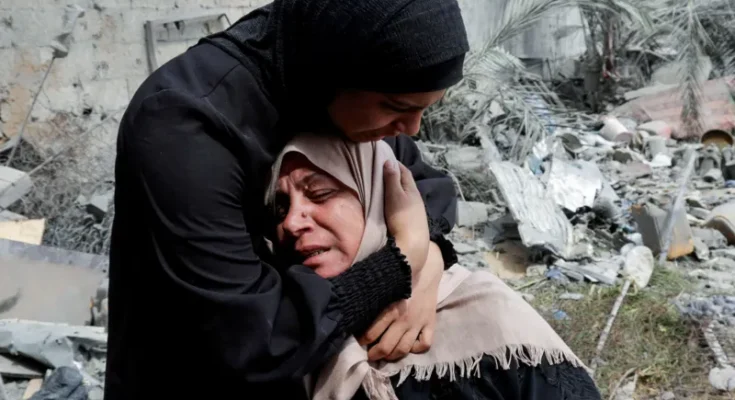A senior Hamas official has declared there is ‘no point’ in continuing negotiations over a ceasefire and hostage release deal, following Israel’s approval of a widened military offensive that could involve taking full control of the Gaza Strip.
Bassem Naim, speaking to the BBC, said the group would not consider any new proposals while Israel persists in what he described as a “starvation war” against Gaza.On Monday, the Israeli military announced a “wide-scale” operation aimed at securing the release of hostages held by Hamas and achieving the militant group’s “decisive defeat.”
Officials stated that the campaign would include the capture of Gaza, the displacement of much of its population, and control over humanitarian aid distribution—following a two-month blockade the UN says has created severe food shortages.
Israeli officials also indicated the offensive would not begin until after U.S. President Donald Trump visits the region next week, framing the delay as a “window of opportunity” for Hamas to agree to a deal.
However, Naim’s comments on Tuesday signaled a rejection of this opening.UN Secretary-General António Guterres issued a stark warning, saying that expanded Israeli ground operations and a prolonged military occupation would “inevitably lead to countless more civilian deaths and the further destruction of Gaza.”
In Europe, UK Prime Minister Sir Keir Starmer and French President Emmanuel Macron voiced serious concern over the escalating crisis, with Downing Street emphasizing their shared belief that a renewed peace process is urgently needed.
In Washington, President Trump announced that the United States would assist in delivering food aid to the people of Gaza, though he did not provide details. “People are starving and we’re going to help them get some food,” he said. “Hamas is making it impossible because they’re taking everything that’s brought in.”
Israel halted all aid deliveries on March 2 and resumed its military operations two weeks later, after the breakdown of a two-month ceasefire. The Israeli government says the pressure is aimed at compelling Hamas to release hostages, and it accuses the group of diverting aid supplies—an accusation Hamas denies.
Aid agencies have raised alarms that, without a policy change, mass starvation is imminent. They have also criticized Israel’s plan to distribute aid via private companies through military-controlled hubs, calling it a violation of humanitarian principles and saying they would not participate.The United Nations maintains that Israel has a legal obligation under international law to ensure the provision of food and medical aid to Gaza’s population. Israel insists it is meeting these obligations and denies there is an aid shortage.
The Israeli military launched its campaign to dismantle Hamas following the group’s unprecedented cross-border assault on October 7, 2023, in which approximately 1,200 people were killed and 251 taken hostage.Since then, at least 52,567 people have been killed in Gaza, according to the Hamas-run health ministry, including 2,459 since the resumption of Israeli operations.





